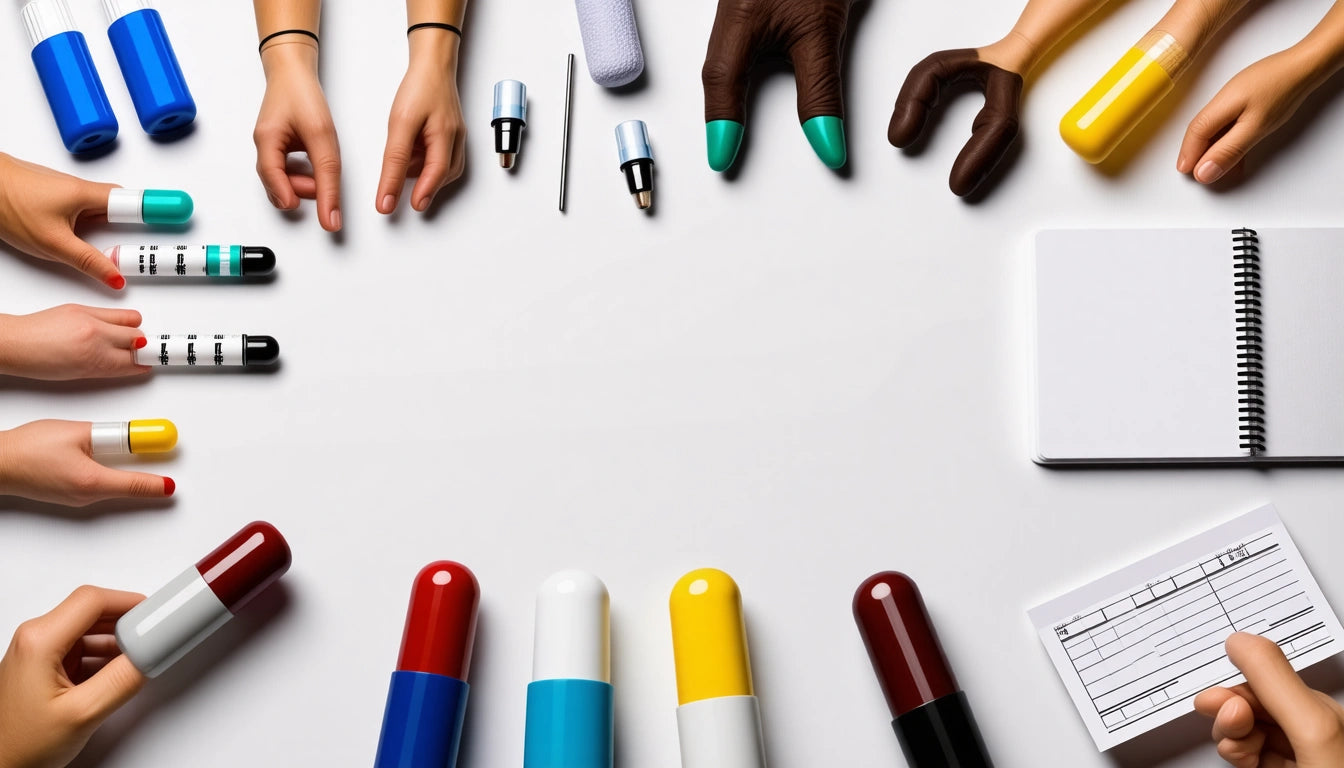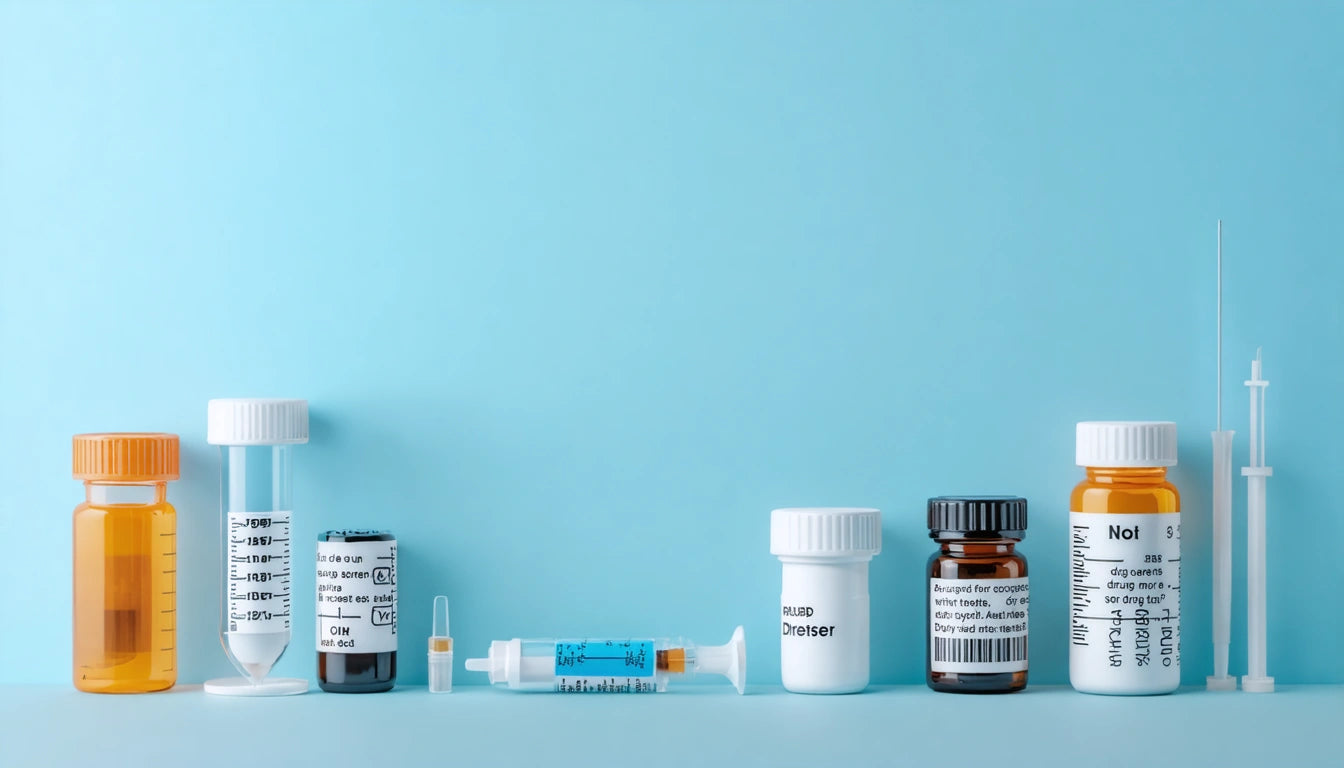Table of Contents
Comprehensive Guide to Drug Testing: Tips, Preparation, and Procedures
Drug testing has become a standard procedure in many workplaces, sports organizations, and legal settings. Understanding how these tests work and how to properly prepare for them can help reduce anxiety and ensure accurate results. This guide covers everything you need to know about drug testing procedures, preparation strategies, and what to expect during the process.
Understanding Different Types of Drug Tests
Drug tests come in several forms, each with unique detection methods and timeframes. Knowing which test you'll face is crucial for proper preparation.
Urine Drug Tests
Urine tests are the most common form of drug screening. They're relatively inexpensive and can detect substances used within the past few days to weeks. Understanding urine drug test procedures can help you know what to expect during collection.
Oral Fluid Tests
Saliva tests are becoming increasingly popular due to their non-invasive nature and ability to detect very recent drug use. These tests typically have a shorter detection window than urine tests, usually capturing substance use from the past 24-48 hours. Oral drug tests are harder to adulterate and can be administered on-site.
Hair Follicle Tests
Hair tests provide the longest detection window, potentially showing substance use from the past 90 days. These tests are more expensive but are preferred when a longer history of potential drug use needs to be established.
Preparation Strategies for Drug Tests
Proper preparation for a drug test involves understanding the testing method and taking appropriate steps to ensure accurate results.
Hydration and Diet
Staying properly hydrated is important before any drug test, but excessive water consumption immediately before a test can lead to a diluted sample, which may trigger a retest. Maintaining a balanced diet can help your body's natural detoxification processes work efficiently.
Avoiding Certain Substances
Some legal substances can trigger false positives on drug tests. These include certain over-the-counter medications, prescription drugs, and even some foods like poppy seeds. Always inform the testing facility about any medications you're taking.
When preparing for a test, many individuals look for natural ways to pass a drug test that don't involve synthetic products or adulterants.
Natural Methods to Prepare for a Drug Test
- Increase water intake gradually in the days leading up to the test
- Exercise regularly to promote natural detoxification
- Consume foods high in fiber to aid elimination
- Get adequate sleep to support your body's natural processes
- Reduce toxin intake by avoiding alcohol and other substances
For those concerned about cannabis specifically, there are specialized strategies for marijuana testing that address the unique properties of THC metabolites.
Common Myths About Drug Testing
The internet is full of questionable advice about beating drug tests. It's important to separate fact from fiction.
Many myths about drug testing persist despite scientific evidence to the contrary. Understanding these myths and realities can prevent you from wasting time on ineffective methods.
Some common myths include using vinegar, niacin, or bleach to alter test results. These methods are not only ineffective but can be dangerous and may flag your sample as adulterated.
Self-Testing Options Before Official Tests
Home drug tests can provide peace of mind before an official screening. These tests are widely available and can help you understand what might show up on an official test.
When selecting a home test kit, look for FDA-approved options that test for the specific substances you're concerned about. While exploring testing options, many consumers find that high-quality testing products from specialized suppliers offer reliable results and discrete packaging for privacy.
For those facing a home drug test, there are specific strategies that can help ensure accurate results without resorting to questionable methods.
Navigating Drug Test Results
Understanding how to check and interpret drug test results is important, especially if you believe there may be a false positive.
False Positives and What Causes Them
False positives can occur due to cross-reactivity with certain medications, foods, or supplements. If you receive a positive result and believe it's inaccurate, request a confirmation test using more advanced methods like gas chromatography/mass spectrometry (GC/MS).
Your Rights During Testing
You have certain rights during the drug testing process, including the right to know which substances are being tested for and the right to disclose medications that might affect results. In some jurisdictions, you may have the right to refuse testing, though this may have consequences depending on the context.
It's important to note that some testing practices may be controversial or even illegal. Understanding these controversies can help you recognize and respond to improper testing procedures.
Future Developments in Drug Testing Technology
Drug testing technology continues to evolve, with new methods emerging that offer greater accuracy and different detection windows. Advances include fingerprint drug testing, which can detect substances through sweat residue, and breathalyzer-style tests for drugs beyond alcohol.
As cannabis legalization spreads, testing methods are also adapting to distinguish between recent use and past use, which is particularly relevant for workplace testing in states where recreational use is legal.
Understanding how to prepare for a drug test will likely remain important even as testing technologies and social attitudes evolve. By staying informed about proper preparation strategies and testing procedures, you can approach any drug test with confidence and ensure the most accurate results possible.











Leave a comment
All comments are moderated before being published.
This site is protected by hCaptcha and the hCaptcha Privacy Policy and Terms of Service apply.